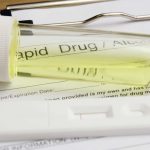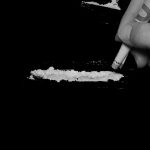In the past several decades heroin has become one of the most dangerous and deadly street drugs in the United States.
A drug overdose is considered to be any drug use that goes beyond the safe dosage. This means that heroin overdoses can be mild, moderate, or severe.
Heroin Overdose
In the case of heroin, overdoses occur whenever the use of heroin begins to threaten or suppress critical life functions, especially your ability to breathe.
Opium poppies are grown and converted into heroin in black market systems that run through Afghanistan, Pakistan, Thailand, Laos, Myanmar, Guatemala, Columbia, and Mexico. The supplies of the drug are likely cut with various filler substances along the way.
And more and more the exceedingly potent opioid drug fentanyl and other synthetic opioids are being laced into heroin supplies, or deceptively sold as heroin.
These factors and heroin’s illicit status make it difficult for individuals to dose heroin accurately or safely, which only increases its danger for those who choose to use it.
Signs Of A Heroin Overdose
Telltale signs of an opiate-related overdose can include:
- gasping for air
- slow, shallow, or stopped breathing
- pale skin
- blue-tinted lips or fingertips
- pinpoint pupils
- weak pulse
- disorientation or confusion
- spasms or seizures
- inability to stay awake
Heroin overdoses can quickly cause death or permanent injury and should be treated as a critical medical emergency. If you or someone near you are exhibiting these symptoms, contact emergency services as soon as possible.
Heroin Overdose Risk Factors
The yearly number of deaths related to heroin overdose has risen dramatically in recent years.
Overdose death rates are closely linked to the different waves of the opioid epidemic, the isolation and political/economic fallout of the covid-19 pandemic, and the rise of heroin-laced fentanyl.
Other risk factors linked to substance abuse and drug overdoses include:
- past heroin use, as those who relapse after a period of abstinence are likely to overestimate their reduced tolerance
- past or current prescription opioid abuse
- depression and other mental health issues
- injection use of opioids, as this delivers the drug to the brain more rapidly than other means
- hepatitis B or C, HIV, and other conditions impacting the liver
- use of heroin with other drugs, especially CNS depressants (benzodiazepines, alcohol) or CNS stimulant “speedballs” (cocaine, methamphetamine)
Treating A Heroin Overdose
Many public health organizations and harm reduction groups provide access to the drug naloxone, which may also be carried by first responders.
Naloxone, which is sold as a nasal spray under the brand name Narcan, blocks opioid receptors and acts as an opioid overdose antidote. In other words, it rapidly reverses opioid overdoses.
However, Narcan cannot reverse brain or organ damage that has already occurred, nor can it reverse overdose effects from non-opioid drugs like cocaine, methamphetamine, or alcohol.
Treating Heroin Addiction
While opioid addiction is not an easy or simple condition to manage, it can be treated using common substance use disorder treatment services, along with a variety of FDA-approved medications.
Common treatment elements include:
- medical detoxification
- cognitive behavioral therapy (CBT)
- individual and group counseling
- medication-assisted treatment (MAT)
- aftercare services
Medications approved for the treatment of heroin use disorder and other opioid use disorders include:
- methadone
- buprenorphine
- naltrexone
If you or a family member struggle with heroin use, please contact Northeast Addictions Treatment Center today.
Sources
Written by
Northeast Addition Editorial Team
©2024 Northeast Addition Center | All Rights Reserved
This page does not provide medical advice.








